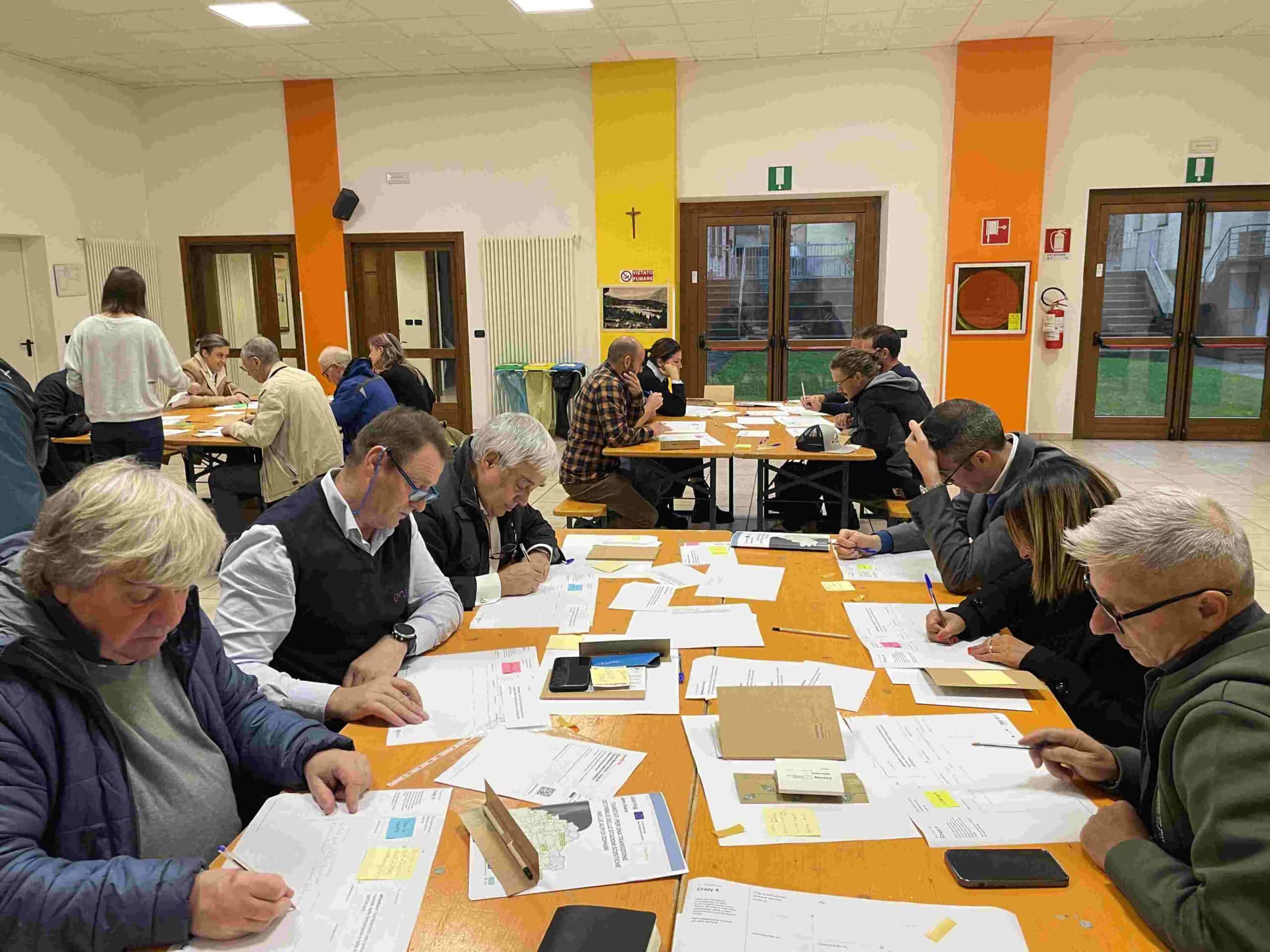Author: Nina Kobal (Development Agency for Upper Gorenjska)
Ski tourism in the Alpine Space is highly vulnerable to snow scarcity, which is increasing due to climate change. Climate change leads to a rapid decrease in snow cover, ski seasons are becoming shorter and slopes are turning green as temperatures rise. Heavy rainfall and extreme weather conditions in Alpine Mountain resorts contributed to snow melting, extreme winds, and poor skiing conditions. Slovenia is not exempt from the challenges posed by climate change.
Kranjska Gora and Zreče, both characterized by an Alpine climate typified by protracted, snow-rich winters and briefer summers featuring moderate temperatures, easterly winds, and sufficient rainfall for sustaining local flora, are now confronted with climatic shifts. Traditionally, the winter endures for four to five months, with a snow cover lasting approximately four months in the valleys. Kranjska Gora and Zreče, like other Alpine regions, are facing the consequences of climate change. The contraction of the ski season and the escalating reliance on artificial snow underscore the urgency for a substantive transition toward sustainable tourism practices in these regions. Consequently, this project aims to congregate key stakeholders to collectively identify challenges, diagnoses and solutions to tackle climate change.
Voices of the Slopes: Unveiling Perspectives and Challenges in Alpine Ski Resorts through a Participatory Approach
The project focuses on inclusion and took a participatory approach by using an online questionnaire to reach out to a diverse audience. The survey, which was strategically distributed through the channels of key project stakeholders, benefited from the insights of residents and the general public. Their views on the ski resorts in Zreče and Kranjska Gora, their opinions and solutions to the area’s challenges became the basis of our qualitative data research.
With 331 respondents sharing their thoughts, it’s clear that awareness of climate change is prevalent. The majority recognized Zreče and Kranjska Gora as ski municipalities, attributing a positive impact of the ski resort on the overall quality of life (68% and 83%, respectively).
In Kranjska Gora, over 80% expressed concerns about the future of skiing due to climate change. In Rogla, though slightly lower at 70%, the sentiment remains. The survey highlighted key climate change effects, including reduced snowfall, shorter ski seasons, higher temperatures, and visible impacts on surrounding forest vegetation. The vulnerability of these resorts, situated at relatively low altitudes, intensifies the challenges.
Analysing the factors of change, Kranjska Gora struggles with mass tourism, real estate issues, fragmented ski slope ownership, outdated infrastructure, and general pricing concerns. In Zreče, the focus shifts to planned windmill construction, outdated infrastructure, ski pass prices, and labour shortages.
Forging a Sustainable Future: Living Lab Workshops in Kranjska Gora and Rogla Ski Resorts for Collaborative Climate Action and Knowledge Exchange
The Development Agency for Upper Gorenjska (RAGOR) is organizing Living Lab workshops in Kranjska Gora and Rogla Ski Resorts to facilitate knowledge exchange and support local stakeholders and resort managers in addressing the challenges of sustainable transition. Social network analysis identified the core stakeholders, revealing distinct associations with nature conservation in Kranjska Gora and tourism and sport in Zreče. The workshops, comprising diverse stakeholders from public and private sectors, aim to comprehensively understand challenges and opportunities in transitioning mountain resorts towards sustainability.
The Living Lab workshops in Kranjska Gora and Rogla Ski Resorts convene stakeholders from varied sectors, enabling a comprehensive understanding of the complexities associated with sustainable transition in mountain resorts. The workshops aim to identify drivers of change, initiate actions to address climate change, and foster collaborative approaches.
TranStat aims at developing sustainable transition scenarios starting from the territorial analysis and the active involvement of local actors. The organization of participatory workshops throughout the project has the aim to create a shared vision in each Living Lab.
The first workshops of the Italian Living Labs took place the 30rd October in Valmalenco and the 7th November in Maniva and were organized by UNIMONT and Regione Lombardia, the two Italian Project Partners. Citizens, entrepreneurs and policy makers from the two Living Labs were involved in the participatory activities, where they had to discuss the main driving factors that are impacting the two Mountain Resorts (MRs), which can be traced back to climate-ecological and socio-economic forces. In detail, the main four driving factors identified in the Italian Living Labs are: changes in the snowfalls, temperatures and water availability; increasing gap between services to tourists and residents; diminishment or missing of workforce, both as quantity and quality of the offer.
Starting from the four factors that are significantly impacting the pilot areas of Maniva and Valmalenco, the local actors involved in the workshops started to elaborate possible shared solutions that would allow them to face the issues and maintain their territory attractive. Two examples: one one hand, in Valmalenco, to cope with the increasing gap between services to tourists and residents, it was suggested that a range of individual and organized leisure activities could be developed for youngs, families and elderly people; on the other hand, in Maniva, to cope with the issue of climate change, it was suggested to promote the use of products at km0 to reduce emissions.
The next workshops in the two Italian Living Labs will take place in April 2024 and will continue till the end of the project in 2025. Indeed, through the participatory activities TranStat aims to define a shared future scenarios and sustainable transition scenarions that are specific for each mountain resort involved in the project.



